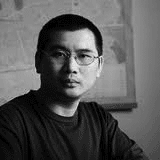8 May 2012 | China
The twists and turns in the fate of “barefoot lawyer” Chen Guangcheng have held all in its thrall. Despite the vigilance of web censors, China’s netizens — particularly its social media users — have found inventive new ways of discussing the case.
China’s web nannies have been on high alert ever since Chen fled his home in his native Shandong province. To bypass the censors, netizens concocted nicknames for Chen, including “Shawshank” (a reference to the film, The Shawshank Redemption) and “Sunglasses” (denoting Chen’s trademark black sunglasses). But within days, these search terms were also blocked .
Tea Leaf Nation, a blog that “makes sense of China through social meda”, rounded up the memes and graphics that people used to express their support for Chen, including photos of girls on Weibo with “Free CGC” tacked onto their bare legs. The pictures are now likely to be deleted.

Blocking on Sina Weibo (China’s hugely popular version of Twitter) has been systematic in the Chen case. “Chaoyang Hospital” the facility where Chen received treatment, is now an illegal term. When you search for it, Weibo tells you that “according to the relevant regulations, search results cannot be shown.”
The authorities are also using soft blocking – Beijing-based film-maker and writer Charles Custer explored how Weibo hides content from users. For Tech in Asia Custer wrote:
What we found is that while Sina did not block “left of his own volition” as a search term … the company clearly took steps to smother discussion of the term by disabling the indexing of new posts containing the term. … While you can still search for posts with “left of his own volition,” you will only see results from before 16:50 this afternoon, which is approximately when Sina blocked the indexing.
Hong Kong University’s China Media Project, has been, as always, the most reliable source of information on what’s been censored. A post by Xiong Peiyun, a journalist and fellow of the centre, is on the Weibo ban list. Links to Xiong’s piece which criticised China for asking for an apology from the US for sheltering Chen in its embassy have been deleted.
Although overtaken by Chen case, China’s crackdown on “rumour-mongering” in the sensitive Bo Xilai affair continues. On 24 April it was reported that the Chinese government shut down at least four Sina Weibo accounts — “Li Delin,” “Guangzhou Wu Guanchong,” “Yangguang de yuanshi” and “Longyitian—945″ — and several reports claim people running these Weibo handles have disappeared.
The Financial Times report that Wu Guanchong was an entrepreneur and avid internet user based in Guangzhou who allegedly used Weibo to circulate rumors about a coup in Beijing. He has been missing for about a month, it is being claimed he was taken away at the end of March by officials from the capital.
Meanwhile, when one searches on Weibo in Chinese for Li Delin, a financial journalist who also blogged extensively on the case, the following notice appears:
Recently, some lawless individuals have used Sina microblog to make up and spread rumors for no reason, which has had a bad effect. They are now being dealt with by Public Security according to the law.
There were a few comments on Weibo about these notices. A student called Zhang Shaoyan wrote:
This [notice] made me think of how our textbooks had described the Kuomintang [Chinese Nationalist Party]. It’s been eighty years, but now the mountains are on our own heads.
Zhang’s comparison of the tactics of the ruling party with the Kuomintang (defeated by the Communist Party during the Chinese civil war) is hardly original. There was a reason he felt so strongly: one of his microblogs had just been deleted.
5 Dec 2011 | Asia and Pacific, China
 China has blocked the website of an iPad magazine called Sun Affairs edited by media rebels Chang Ping and Wen Yunchao. The site has lost its mainland audience.
China has blocked the website of an iPad magazine called Sun Affairs edited by media rebels Chang Ping and Wen Yunchao. The site has lost its mainland audience.
To the government, Chang has form. Earlier this year his controversial commentary got him sacked from the county’s most liberal newspaper company, the Southern Group. Officials are refusing to grant him the visa that would enable him to join a new venture at Sun TV in Hong Kong.
China Media Project (CMP) reported that he was “was offered a position…and filed a visa application under Hong Kong’s Admission Scheme for Mainland Talents and Professionals.” Eight months later, his application has still not been granted. Chang told Southern Media, “I have asked them [the Immigration Department] about it, and they simply say that [my application] is under review.”
The fact that Chang Ping is being denied the opportunity to leave the mainland is an indicator of the worsening environment for journalists, something that Chang Ping has reflected in a blog post, where he writes:
Some people have talked about the loosening up of the media, but when I ask writers to write explaining this… they ask me to delete their stories once they have been used, and forbid me from sending them a cheque, so the stories can’t be traced to them. What a contrast this is to the supposed loosening up… [The media atmosphere] has tightened up.
Read an interview with Chang Ping here
7 Sep 2011 | Asia and Pacific, China
The news earlier this week that two popular Beijing newspapers will now come under the capital’s propaganda department has raised concerns that the two hard-hitting dailies will face tighter control.
The Beijing News and Beijing Times were previously under the control of state-level propaganda authorities.
Most commentators agree that the change means that the papers will not be able to report as freely on local news as before.
We talked to David Bandurski, editor of the Hong Kong-based China Media Project, and asked him what this means for the two papers and why it was happening now.
The thing to understand about this story is just how important the power of cross-regional reporting and top-down media monitoring has been for Chinese media in recent years.
Essentially, publications registered in one city or province are less able to do hard-hitting reporting of local issues because, according to China’s press bureaucracy, they are directly controlled by the Party leaders immediately above them. For example, top city leaders in Guangzhou have fairly direct control through their own propaganda department over any newspaper registered under the city level there. So these papers won’t generally do investigative reporting on corruption in the city government.
By contrast, a paper registered in another city or province can more safely conduct such monitoring because they have little to fear from these leaders. This is what cross-regional reporting, or yidi jiandu, is all about.
He added,
But another important tool is top-down monitoring, which means that a publication registered at a higher administrative level can more easily and safely report on stories about lower-level Party or government institutions.
This was the case with both the Beijing News and Beijing Times. The former was administered by the Guangming Daily Group, under the Central Propaganda Department, and published jointly with the Nanfang Daily Group of Guangdong.
City leaders in Beijing could not control the newspaper through their own propaganda department because the paper was senior.
The Beijing News, which has had a strong professional tradition of reporting — part of its legacy from its southern Chinese co-publishers — certainly exploited this administrative position to its advantage, doing harder coverage of local issues in Beijing.
You can imagine that in some sense, from the standpoint of Beijing leaders, the paper was like a sword of Damocles, constantly hovering over their heads.
The only way for them to deal with the paper was to do so through negotiation with the paper’s managing institutions.
The Beijing Times, as a commercial spin-off of the central Party’s official People’s Daily newspaper, was in much the same position.
So this action by the Beijing city leadership is a clear move to deal with Beijing-based publications that have been beyond their control.
One of the most interesting questions, though, is exactly what sort of behind-the-scenes power shifts made this change possible. I leave that as an open question.
There is little question that this change will have a clear impact on the conduct of watchdog journalism, or “supervision by public opinion”, by both papers on local Beijing issues.
Theoretically, it will still be possible for them to investigative stories in other cities and regions, but the impact on reporting in Beijing should be immediate. This is something we’ll have to watch closely.


